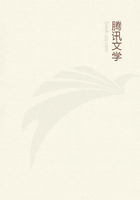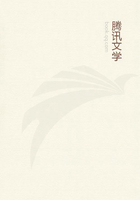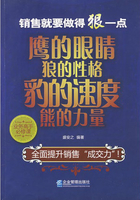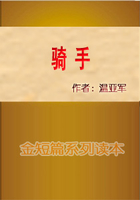7 Nothing is more striking than to observe in how many ways a limited conception of human nature, the notion of a one thing needful, a one side in us to be made uppermost, the disregard of a full and harmonious development of ourselves, tells injuriously on our thinking and acting. In the first place, our hold upon the rule or standard, to which we look for our one thing needful, tends to become less and less near and vital, our conception of it more and more mechanical, and more and more unlike the thing itself as it was conceived in the mind where it originated. The dealings of Puritanism with the writings of St. Paul, afford a noteworthy illustration of this. Nowhere so much as in the writings of St. Paul, and in that great apostle's greatest work, the Epistle to the Romans, has Puritanism found what seemed to furnish it with the one thing needful, and to give it canons of truth absolute and final. Now all writings, as has been already said, even the most precious writings and the most fruitful, must inevitably, from the very nature of things, be but contributions to human thought and human development, which extend wider than they do. Indeed, St. Paul, in the very Epistle of which we are speaking, shows, when he asks, 'Who hath known the mind of the Lord?'--who hath known, that is, the true and divine order of things in its entirety,--that he himself acknowledges this fully. And we have already pointed out in another Epistle of St. Paul a great and vital idea of the human spirit,--the idea of immortality,--transcending and overlapping, so to speak, the expositor's power to give it adequate definition and expression.
8 But quite distinct from the question whether St Paul's expression, or any man's expression, can be a perfect and final expression of truth, comes the question whether we rightly seize and understand his expression as it exists. Now, perfectly to seize another man's meaning, as it stood in his own mind, is not easy; especially when the man is separated from us by such differences of race, training, time, and circumstances as St Paul. But there are degrees of nearness in getting at a man's meaning;and though we cannot arrive quite at what St. Paul had in his mind, yet we may come near it. And who, that comes thus near it, must not feel how terms which St. Paul employs, in trying to follow with his analysis of such profound power and originality some of the most delicate, intricate, obscure, and contradictory workings and states of the human spirit, are detached and employed by Puritanism, not in the connected and fluid way in which St. Paul employs them, and for which alone words are really meant, but in an isolated, fixed, mechanical way, as if they were talismans; and how all trace and sense of St. Paul's true movement of ideas, and sustained masterly analysis, is thus lost? Who, I say, that has watched Puritanism,--the force which so strongly Hebraises, which so takes St. Paul's writings as something absolute and final, containing the one thing needful,--handle such terms as grace, faith, election, righteousness, but must feel, not only that these terms have for the mind of Puritanism a sense false and misleading, but also that this sense is the most monstrous and grotesque caricature of the sense of St. Paul, and that his true meaning is by these worshippers of his words altogether lost?
9 Or to take another eminent example, in which not Puritanism only, but, one may say, the whole religious world, by their mechanical use of St. Paul's writings, can be shown to miss or change his real meaning. The whole religious world, one may say, use now the word resurrection,--a word which is so often in their thoughts and on their lips, and which they find so often in St. Paul's writings,--in one sense only. They use it to mean a rising again after the physical death of the body. Now it is quite true that St. Paul speaks of resurrection in this sense, that he tries to describe and explain it, and that he condemns those who doubt and deny it. But it is true, also, that in nine cases out of ten where St. Paul thinks and speaks of resurrection, he thinks and speaks of it in a sense different from this;--in the sense of a rising to a new life before the physical death of the body and not after it. The idea on which we have already touched, the profound idea of being baptized into the death of the great exemplar of self-devotion and self-annulment, of repeating in our own person, by virtue of identification with our exemplar, his course of self-devotion and self-annulment, and of thus coming, within the limits of our present life, to a new life, in which, as in the death going before it, we are identified with our exemplar,--this is the fruitful and original conception of being risen with Christ which possesses the mind of St. Paul, and this is the central point round which, with such incomparable emotion and eloquence, all his teaching moves. For him, the life after our physical death is really in the main but a consequence and continuation of the inexhaustible energy of the new life thus originated on this side the grave. This grand Pauline idea of Christian resurrection is worthily rehearsed in one of the noblest collects of the Prayer-Book, and is destined, no doubt, to fill a more and more important place in the Christianity of the future. But meanwhile, almost as signal as the essentialness of this characteristic idea in St. Paul's teaching, is the completeness with which the worshippers of St Paul's words as an absolute final expression of saving truth have lost it, and have substituted for the apostle's living and near conception of a resurrection now, their mechanical and remote conception of a resurrection hereafter.















